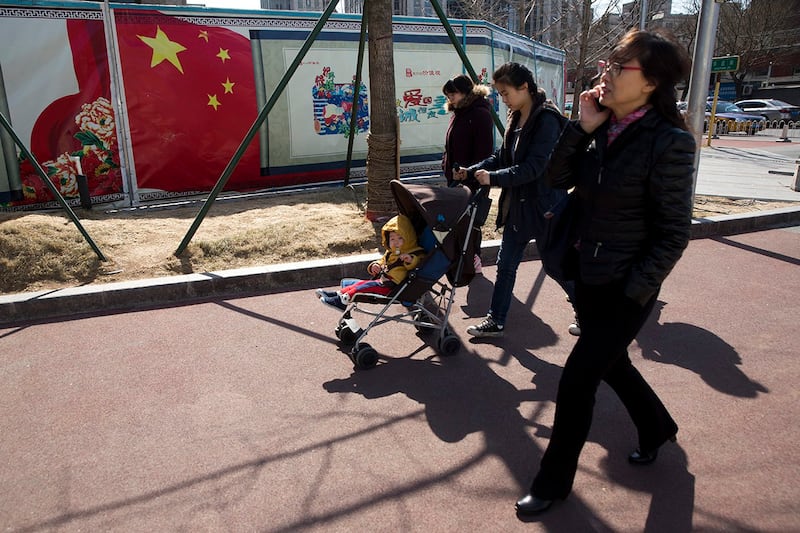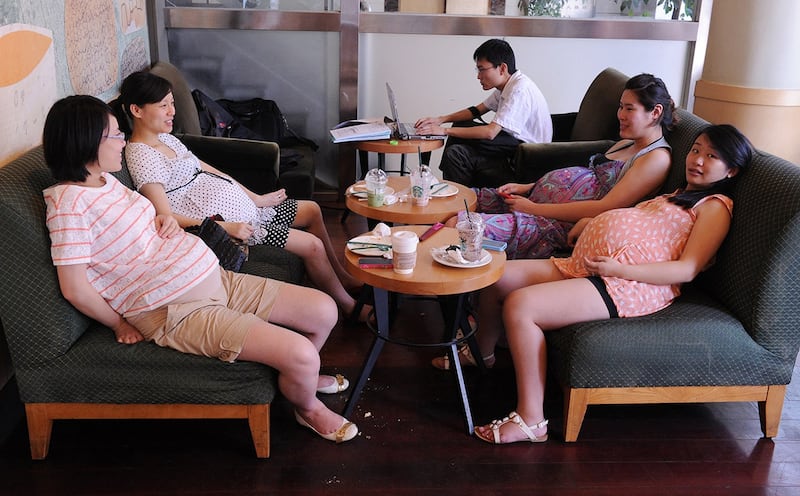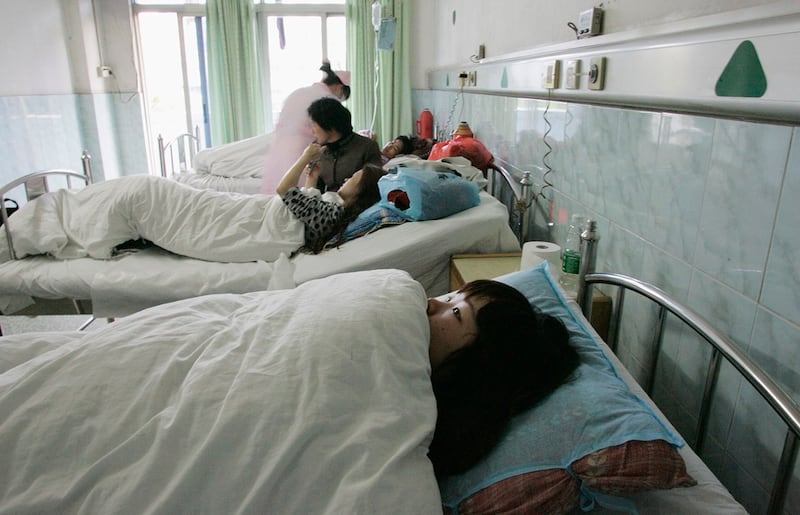[ Read coverage of this story in MandarinOpens in new window ]
Gigi, 25, once sold her eggs via a surrogacy agency for 45,000 yuan (US$6,300), money she regarded as “start-up capital” to help her relocate to Shanghai and find a new job.
The woman, who asked to use a pseudonym for fear of reprisals, had little in the way of family backing to get her started in life, so, shortly before graduating from college, she answered an advertisement posted to a social media group chat for job-seekers.
She was questioned about her height, weight, hobbies and family medical history, and quoted a fee of 45,000 yuan, which would cover the cost of her planned move to Shanghai, enabling her to put a deposit down on an apartment and live there until she found a job.
Three weeks later, the agent came back to tell her that a prospective buyer had been found for her eggs, and that an online interview was the next step.
During the video call, Gigi was told to keep her camera switched on, although the buyer remained on audio only throughout negotiations. But the buyer was unnerved by the fact that her grandparents had died at the age of just 60, and backed out of the deal.
The next time the agent found a buyer, Gigi was told to say that they were all still alive.
The ruse worked.

Physical examinations followed at a hospital in Shanghai, where she met the buyer for the first time, a quietly spoken woman in her 30s, who liked Gigi’s looks, particularly her height.
Gigi was sent off to stay in a hotel with two other young women, one of whom was doing it to pay for plastic surgery, the other for a vacation. All three had been offered slightly different sums for their eggs.
Each day, a black Mercedes would shuttle them back and forth between the hotel and the laboratory, where Gigi described a “huge production chain” with nurses, doctors and nutritionists that looked “formal and professional.”
There, the three women underwent repeated vaginal ultrasound scans so doctors could see when their eggs were ready for harvesting.
Gigi suffered some pain after her eggs were removed, but one of the other women developed severe ascites – the abnormal accumulation of fluid in the spaces between tissues and organs in the abdominal cavity.
She had to have medical treatment for three days following the procedure. But overall, she felt that the follow-up care was good.
“Maybe the agent I dealt with had a conscience,” Gigi says of the experience in retrospect. “They wanted to make sure there was nothing wrong with our health before letting us go.”
The agent later checked in again with Gigi via WeChat, asking if she was OK. “Maybe she was hoping I’d work with them a second time,” Gigi said.
But Gigi has since deleted the agent’s details, as recent news stories have made her think twice about whether the practice should be allowed to continue.
Collusion with surrogacy companies
Authorities in the northeastern Chinese city of Qingdao said last month that they were investigating reports that two private companies were engaged in illegal surrogacy and egg retrieval operations.
The Qingdao Municipal Health Commission announced on Aug. 26 it had “immediately set up a joint investigation team with police, market supervision and other officials to investigate and verify” reports that a local company had been selling surrogate pregnancies.
The move came after anti-trafficking campaigner Shangguan Zhengyi, who also uses a pseudonym for fear of reprisals, accused Qingdao Chunyun IVF Consulting and Qingdao Meike Biotechnology of “colluding with medical staff ... to engage in illegal medical practices and sell birth certificates.”
“An undercover investigation revealed that surrogacy companies colluded with doctors, anesthesiologists, and nurses from medical institutions such as Qingdao Women and Children’s Hospital to engage in illegal egg retrieval and embryo transplantation activities, and sold birth certificates at prices ranging from 50,000 yuan (US$7,000),” the campaigner said in a Aug. 26 post to their Weibo account.

It said operations had spanned Liaoning, Jiangsu, Shandong and other provinces, under the guise of legal IVF services, in a well-organized operation had “dedicated personnel to find egg donors via the internet, to find surrogate mothers, to assist deliver, and to liaise with and develop local medical institutions.”
The report wasn’t the first to emerge, either.
In 2017, an undercover investigation by Shandong TV (in Chinese) found a "surrogacy village" in the central province of Hubei in which local women were recruited in large numbers to carry babies to term as surrogates.
And a joint investigation by government-backed news outlet The Paper and Shangguan Zhengyi raised the alarm over a " baby-selling" operation in Shandong.
‘A naive young woman’
Gigi has been following the recent reports with a sense of extreme unease, realizing what kind of an operation she became involved with.
“I was such a naive young woman at the time,” she said. “I didn’t think about things in a mature way, and I didn’t even have anyone to discuss this stuff with.”
She noted that another of her fellow donors also lacked emotional and financial support from her family, while her other friends’ families were able to pay for what their children needed as they grew up and flew the nest.
China lacks comprehensive legislation on surrogacy, and officials and police only have a set of administrative guidelines on assisted reproduction issued by the Ministry of Health in 2001 to rely on, according to Chinese feminist and visiting scholar at Stanford University Li Sipan.
Nonetheless, the sale and purchase of eggs, sperm, fertilized eggs and embryos is banned in any form, and medical institutions are barred from engaging in surrogacy operations.
But there’s a loophole, according to Li. The measures don’t apply to non-medical facilities and staff.
The unequal status of women in the economy, the lack of independent reproductive rights, weak legal provisions, and the lack of public freedom of speech have all ensured that surrogacy continues to thrive on the black market, with the collusion of medical staff, she said.
“Of course I think surrogacy is a form of exploitation of poor women, and it turns women’s uteruses into commodities or tools,” Li said. “But if you ban it across the board, once you authorize more state violence, the state is likely to double down on exercising this right, and I think that’s even more terrifying.”
In neighboring Cambodia, the authorities view surrogacy as a form of human trafficking, and apply the same criminal penalties.
Authorities in Laos have also shuttered surrogacy clinics in the capital Vientiane that were using Thai women as surrogates, RFA reported in 2017.
‘Diverse needs of individuals’
Shen Jia, who runs a surrogacy clinic in the United States, says around 60% of the clinic’s business comes from China.
Infertility is the biggest driver of the practice, with rates running at more than 18% in 2023, but some women are unwilling to get pregnant a second or third time, or feel they may be too old to carry a child to term safely, she said.
As for the legality of the practice, Shen thinks it shouldn’t be criminalized, although no pregnancy is without risk, even for younger women.
“How can you criticize people for wanting to have a child?” she said. “I think this is very unfair.”

For anti-trafficking campaigners like Shangguan Zhengyi, such operations always carry the danger of fueling black-market transactions and trafficking like the cases he has helped to highlight.
But feminist activist Zhang Jing said there should at least be more public debate about legalizing surrogacy in China.
"[Buyers] are also victims of the system, so why can't we offer them another choice?" she said, adding that family planning policy under the ruling Chinese Communist Party has never put the diverse needs of individuals over the concerns of the state.
“What they want is for you to have children if you are allowed to, and not to have them if you’re not,” Zhang said. “It’s actually the worst kind of objectification of women.”
Li also wonders what the impact of an outright ban would be on the majority of Chinese women.
“The role of most Chinese women in marriage is to give birth and raise children,” she said. “If the purpose of our blanket ban is to protect women, have we ever thought about what the actual result might be?”
“In this discussion, the voices of these women should also be heard and considered,” she said.
Radio Free Asia contacted several surrogacy agencies claiming to be located in China to learn about their operations and the possible risks for women, but had received no response by the time of publication.
Translated by Luisetta Mudie.
